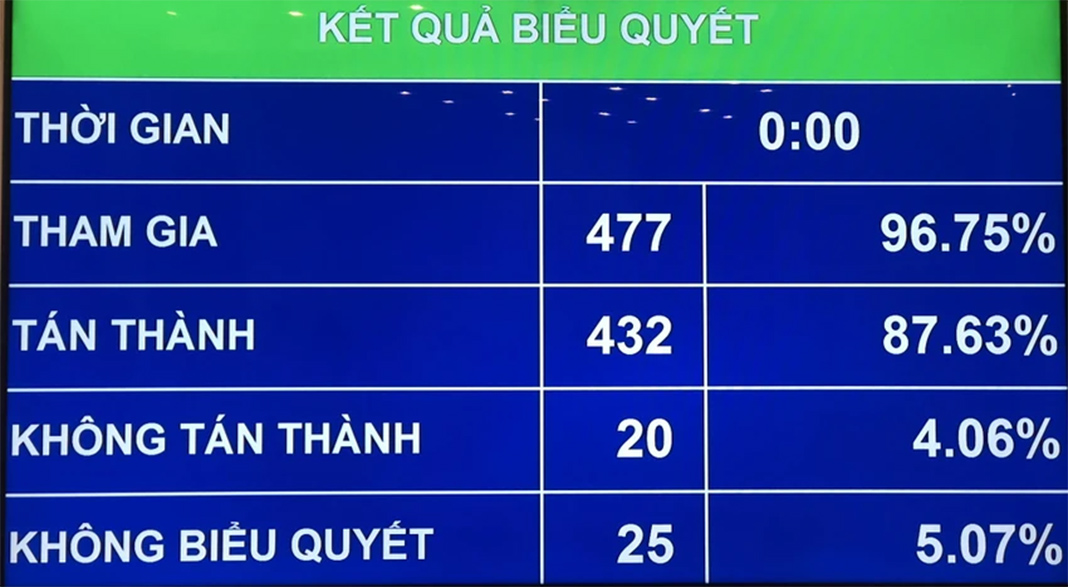HCMC – The National Assembly (NA) this morning, January 18, passed the amended Land Law, with 87.63% of the NA deputies present at the ongoing session voting in favor.
Presenting a report on the latest revisions of the draft of the amended Land Law before the vote, Chairman of the NA Economic Committee Vu Hong Thanh said the draft law had been meticulously prepared through multiple rounds and steps, presented to the NA in four sessions, two conferences of full-time NA deputies, and eight sessions of the NA Standing Committee (including one session on a plan for collecting public opinion on the draft).
The draft law had been refined thanks to input from various agencies, organizations, experts, scientists, stakeholders, and over 12 million opinions from the public.
“The NA reviewed the draft law at the 5th extraordinary session in a special procedure, and all opinions of the NA deputies were received and explained. This reflects the careful approach of the NA and the agencies in legislative activities, always valuing quality and efficiency,” said Thanh.
After refinement, the draft consists of 16 chapters and 260 articles.
Regarding the rights of economic organizations and public non-business units (PNU) leasing land from the State and paying annual fees (Article 34), Thanh suggested allowing businesses to mortgage the right to lease land for annual payments. However, the law stipulates that in the case of leasing land for annual payments, the land user has the right to mortgage only assets owned by them attached to the land.
Regarding the proposal for public non-business units that has paid land rent for the entire project lifespan to be allowed to mortgage, contributing capital with assets attached to the leased land, Thanh said that allowing mortgage and capital contribution with assets attached to the leased land poses risks to the land used by such units.
Moreover, if PNUs leasing land annually from the State have the same rights as economic organizations leasing land annually, it would create inequality between PNUs and businesses.
Regarding land prices, Thanh said that the draft law specifies the annual issuance of land price lists to ensure close alignment with market realities and expand the scope of land price application.
The draft law also stipulates that the provincial People’s Committee is responsible for submitting to the provincial People’s Council for decision on adjusting, amending, supplementing the land price list to be announced and applied from January 1 of the following year or adjusted, amended, supplemented during the year.
According to Thanh, the draft Land Law amendment presented to the NA at this session stipulates that commercial housing projects can be implemented through agreements on land use rights for residential land; using existing land use rights to implement commercial housing projects on residential land or other types of land.
In necessary cases, the Government would study, develop a pilot project, submit to the competent authority for consideration, and submit a resolution allowing the pilot implementation of commercial housing projects through agreements on land use rights or existing land use rights for other types of land as stipulated by the law.
Regarding land recovery for socio-economic development for the national and public interest, in response to the proposal to eliminate Clause 32 of Article 79 of the draft law, the committee said: The provision in Clause 32 of Article 79 is planned for cases where it is truly necessary to recover land that arises but is not covered by this law.









